

In the recently convened “lame-duck” session of Congress, senators and representatives will take on a number of issues that could have major consequences for working families and retirees. Congress is considering benefit cuts for Social Security, Medicaid and Medicare and members are looking at cutting taxes for the wealthy even further. Any deal that Congress makes, though, should be based on facts and not the myths that have sprung up around taxes, the deficit and the earned benefit programs. Here are a few of the key myths and the truth behind them.
Myth: Extending the Bush tax cuts for the wealthiest two percent is important because the economy is weak.
Economists agree that cutting taxes on the wealthy is one of the least effective ways to stimulate the economy. A much better use of the $1 trillion cost of those tax cuts would be to invest in infrastructure or extend unemployment benefits.
» Read more about: Lame-Duck Session of Congress: Myths and Facts »
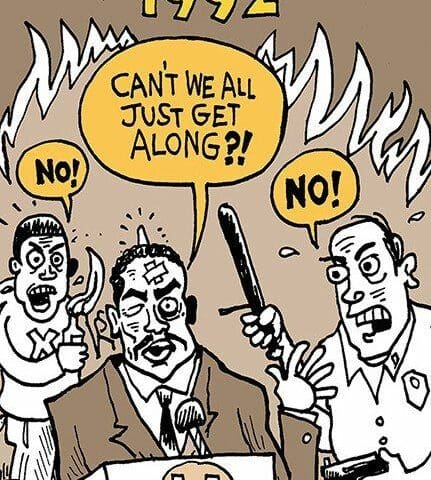
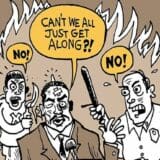
» Read more about: Riot Acts: Lalo Alcaraz on LA's "Progress" »


Hostess is dead. Long live Hostess. A last minute mediation between bankrupt Hostess Brands and the second largest union at the company, the Bakery, Confectionery, Tobacco Workers and Grain Millers International Union (BCTGM) failed to produce results, and liquidation resumed last Wednesday, with a number of potential buyers salivating over the company’s assets and iconic brands.
Hostess’ CEO Gregory Rayburn told presiding bankruptcy judge Robert Drain that he needed to lay off the vast majority — 15,000 — of the company’s 18,500 employees and begin the part and parcel sale of the company immediately for maximum return. Rayburn explicitly blamed a last-minute strike following the BCTGM’s refusal to make harsh concessions as responsible for the company’s demise. In fact, the company’s unions had made concessions totaling $110 million in the last Hostess bankruptcy, which began in 2004. This latest request was a race to the bottom — peeling back negotiated wages,


There’s an almost childlike thrill one feels watching the early moments of Gatz, the six-hour re-enactment of The Great Gatsby that opened last night at Redcat and which runs through December 9. It comes from listening to an ensemble of committed actors perform every word of F. Scott Fitzgerald’s 1925 novel as though we were being read a fairy tale by our parents. In a way, Fitzgerald’s story about a mysterious man (or is he an ogre?) who lives in a Long Island castle and who pines for a young woman in marital distress is a modern fairy tale. It’s also a Jazz Age fable about soul-destroying materialism, class snobbery and feelings of racial entitlement – which means it also has something for everyone in 21st-century America.
This visiting production, staged by New York’s Elevator Repair Service theater company, has been around in its present form for six years.
» Read more about: “Gatz”: A Modern Fairy Tale From Fitzgerald’s Jazz Age Classic »

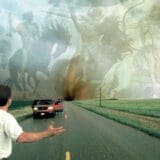
Despite the conventional wisdom that Southern California only has one season, some wag suggested it does indeed have four: Fires, floods, earthquakes and riots. So far this year we’ve had none of those, for which I am grateful, and I hope our luck holds.
I say luck because Los Angeles County leads the state in fire risk. Of the million homes in California in high-risk fire areas, half are in our county. Seven of the 10 most expensive fires in the U.S. since 1990 have been in California, and insurers paid some $5 billion in wildfire claims in 2003, 2007 and 2008.
Meanwhile, wildfires across the country have set new records. Nine million acres of forest were destroyed this year in 45,000 wildfires. An area larger than Massachusetts was burned over in five western states, including ours. That’s 13,000 square miles blackened, wild life killed, trees and brush scorched and burned.
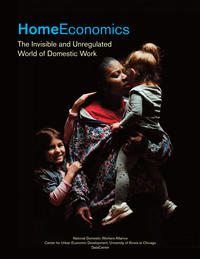

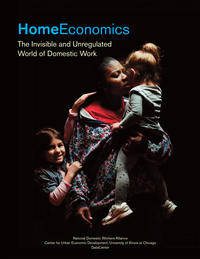 Domestic workers, such as caregivers and nannies, make all forms of other work possible and play an increasingly significant role in the U.S. economy. However, a new national study found, on average, domestic workers earn little more than minimum wage and few receive benefits like Social Security, health insurance or paid sick days.
Domestic workers, such as caregivers and nannies, make all forms of other work possible and play an increasingly significant role in the U.S. economy. However, a new national study found, on average, domestic workers earn little more than minimum wage and few receive benefits like Social Security, health insurance or paid sick days.
Conducted by the National Domestic Workers Alliance (NDWA) and the Center for Urban Economic Development at the University of Illinois at Chicago, the study offers a startling and provocative look into the often-invisible world of domestic workers. Based on interviews with 2,086 workers across the country, researchers found domestic workers face serious financial hardships and have little control over their working conditions.
As a critical part of the U.S. labor force, domestic workers help thousands of working families by enabling them to focus on their jobs. Yet, they are often paid well below the level needed to adequately support their own family.
» Read more about: Study: Domestic Workers' Treatment Is a Disgrace »
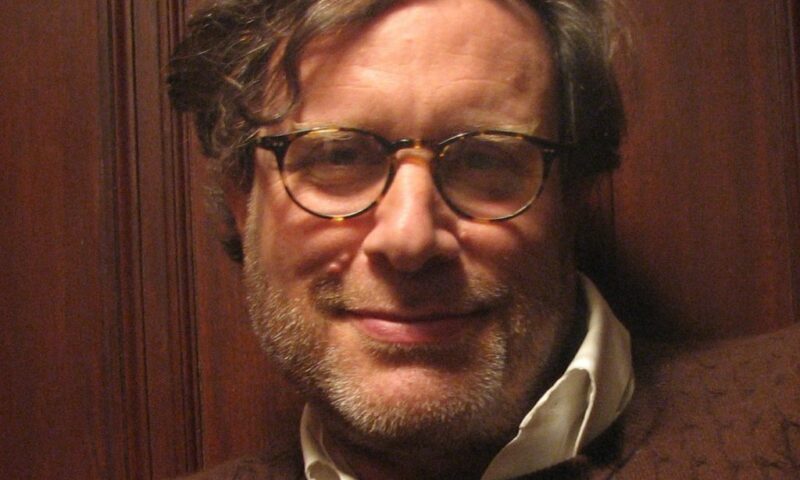

 Few figures in the music industry have had as colorful or as influential a career as Danny Goldberg. The one-time manager of superstars Nirvana, Sonic Youth and Bonnie Raitt, Goldberg parlayed his knowledge of rock and roll into positions of power, serving as CEO of Warner Bros. Records and president of Atlantic Records.
Few figures in the music industry have had as colorful or as influential a career as Danny Goldberg. The one-time manager of superstars Nirvana, Sonic Youth and Bonnie Raitt, Goldberg parlayed his knowledge of rock and roll into positions of power, serving as CEO of Warner Bros. Records and president of Atlantic Records.
Goldberg’s accomplishments in the entertainment industry are only a part of the story. He has been a forceful voice within progressive politics for more than three decades, beginning with No Nukes, the 1980 documentary featuring Bruce Springsteen, Jackson Browne and other legends that he co-produced and co-directed. As chair of the ACLU in Southern California, Goldberg was a very visible national defender of civil liberties, clashing with Tipper Gore over attempts to censor rock lyrics. He is a prolific writer, with hundreds of articles and several books to his credit (including his acclaimed industry memoir,
» Read more about: Danny Goldberg on Labor’s Message Gap and the Art of Politics »


So far the HOT Lanes (High Occupancy Toll Lanes) experiment is going well. On the program’s first business day, Los Angeles County’s transportation agency, Metro, reported that “traffic was flowing smoothly in the heart of the morning rush hour,” and despite some grumblings from the media, all was well on the I-110. As commuters adjust to the new system, there are a few questions that we need to ask to understand the future of HOT Lanes. And despite my lack of clairvoyance, I’d like to submit my educated guesses on the future success of tolls in Los Angeles.
First, does the system work? At its most basic level, we will need to see if the technology works, if the Metro bureaucracy is a barrier for commuters and if the CHP can adequately enforce the rules. The answer to these questions will take time, but since the program has been successfully implemented in several places across California,
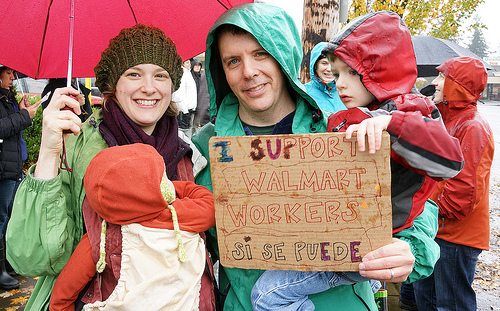

So the day of action at Walmart, the world’s largest retailer, has passed at least for the time being. And it turned out to be much larger than the company’s executives in Bentonville had predicted or care to admit.
Thousands of Walmart workers and their allies protested for better wages, affordable healthcare benefits, full-time jobs and an end to management retaliation for speaking out in at least 100 cities, including in Dallas and Lancaster, Texas, Miami and Kenosha, Wisconsin, and several other locations not know for their activism. Although the final tally will not be clear for some time, “open-source” actions of some kind took place at Walmart stores in 46 different states across the nation, with major demonstrations in California, Washington, New York and Massachusetts.
Before Black Friday, the company’s management insisted that the “so called protests” involved a handful of associates at a handful of stores, supplemented by non-Walmart employees,
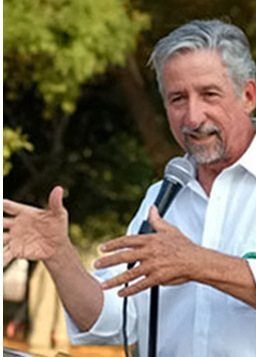
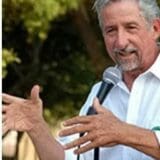
Tom Hayden will be speaking at Occidental College this Thursday on the topic, “From the 1960s to Barack Obama: What Now?” The talk starts 7 p.m. in Weingart Hall, Room 117, on the Oxy campus. (Directions to Oxy and a campus map are linked here).
Hayden is one of the most important public figures and influential organizers in American history. A founder of Students for a Democratic Society and author of its seminal manifesto “The Port Huron Statement,” he has also been a Freedom Rider in the civil rights movement, a community organizer in Newark, the founder of California’s Campaign for Economic Democracy, an elected member of the California legislature for 18 years, and a leader of the movements opposing wars in Vietnam, Central America, Iraq and Afghanistan, and the author of 20 books. Here is Hayden’s website and complete bio: tomhayden.com
Tom is an inspiring speaker and prolific writer.
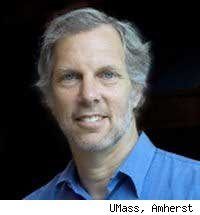

Few American economists want anything to do with social movements. Then there’s Robert Pollin, who has embraced his role as a progressive with a prolific output of books, studies and articles that make the economic case for greater equality.
Pollin, who will be honored at the L.A. Alliance for a New Economy’s (LAANE) City of Justice Awards Dinner next month, rose to prominence in the late 1990s as the most ardent academic defender of living wage laws. In recent years he has advanced the case for a new green economy based on good jobs and environmentally sensible policies.
Pollin, a professor of economics at the University of Massachusetts – Amherst and co-director of the Political Economy Research Institute, may be left of center but he is no business-bashing liberal. To the contrary, he learned from his father – the late Abe Pollin,
» Read more about: Progressive Economist Robert Pollin Gets Down to Business »


Strippers in California were handed a major victory earlier this month by the same judge who ruled “Don’t Ask, Don’t Tell” unconstitutional. The case ruled that dancers were wrongfully classified as independent contractors, and awarded $13 million in back pay and fees to strippers at the massive Spearmint Rhino Chain.
The settlement does away with “house fees” that require dancers to pay a set fee to the club for each shift at California locations, and also requires the chain to reclassify workers [to] employee status within six months. Dancers were previously considered “independent contractors” but subject to strict policies that belied this status.
The Ventura County Star reports on the basis of the lawsuit:
Two women who danced at the Spearmint Rhino in Oxnard launched the suit: Christeen Rivera and Tracy Dawn Trauth. They claimed they were wrongly treated as independent contractors rather than employees entitled to benefits.
» Read more about: Judge: Strippers Are Not Independent Contractors »


“If you’re not a liberal at 20 you have no heart. If you’re not a conservative at 40 you have no brain.” Winston Churchill is believed to have once said that and there are various forms of this sentence that get repeated over and over. Perhaps it’s because deep down a lot of people believe it. Supposedly something happens right around the time progressives turn 30, during which time they take serious account of their lives and question what they believe and why they believe it. In some cases, they “burn out” on activism and decide not to pursue a life in social justice. After all, what’s the point? The world has gone crazy and it’s only getting worse, despite our best efforts…Or so the thinking goes.
I’ve never liked the term “burn out.” “Burn out” implies a fire that goes out and won’t return. After all, anyone who has camped knows how difficult it is to get a fire started again after it’s gone out the first time.
» Read more about: For the Long Run: Hitting the Wall and Getting Over It »


As Black Friday approached, I couldn’t help but remember a vivid scene in The Poisonwood Bible by Barbara Kingsolver where an entire Congo village is overrun by a swarm of ants, creating a human stampede, a living wall of death. The only thing that saves one of the missionary’s daughters are two words of advice that would serve any Walmart shopper well – “elbows out.”
This year, Walmart’s Black Friday customers had to contend with a new challenge: striking workers and their community supporters, who staged actions at stores across the country. Judging by the breadth and intensity of the protests, Walmart diehards had better get used to facing picket lines, and not just on the busiest shopping day of the year.
The origins of the “Black Friday” label are contentious, with commercial interests arguing that it lies in the accounting term of being profitable,


 As anybody with a TV, radio or newspaper subscription can affirm, the big story coming out of the 2012 election is the long feared/eagerly awaited arrival of the Latino Vote as a national political force capable of deciding a presidential contest. Latinos accounted for a record 10 percent of the electorate this year, and something north of 70 percent of them cast their ballots for Obama. Meanwhile, fewer Latinos than ever before voted for the Republican candidate. With the Latino segment of the electorate poised to continue expanding for many election cycles to come, leaders of both parties are tripping over each other to position themselves on immigration reform, and even in blood red states like Texas, GOP strategists are warning of imminent doom for their party if Republicans fail to break their cycle of addiction to racism, xenophobia and pandering to border-guarding lunatics.
As anybody with a TV, radio or newspaper subscription can affirm, the big story coming out of the 2012 election is the long feared/eagerly awaited arrival of the Latino Vote as a national political force capable of deciding a presidential contest. Latinos accounted for a record 10 percent of the electorate this year, and something north of 70 percent of them cast their ballots for Obama. Meanwhile, fewer Latinos than ever before voted for the Republican candidate. With the Latino segment of the electorate poised to continue expanding for many election cycles to come, leaders of both parties are tripping over each other to position themselves on immigration reform, and even in blood red states like Texas, GOP strategists are warning of imminent doom for their party if Republicans fail to break their cycle of addiction to racism, xenophobia and pandering to border-guarding lunatics.
» Read more about: The "Other" America: Voters Are Getting All Mixed Up »


The very next day after the election, congressional leaders held dueling press conferences in Washington to start the stampede to the fiscal cliff. But December 31 is not a cliff; it’s a slope. Actually, the better metaphor is a showdown between two different visions for the country – a showdown that will not only take place over the next four months, but will dominate debate about the economy for the next four years.
It is true that if Congress allows the tax hikes and spending cuts to be fully implemented, the economy will go into a tailspin, with four million people forced out of their jobs. But that won’t happen on January 1. The impact of both tax hikes and spending cuts take time to accumulate. If Congress acts on taxes early in the year, it can make lower tax rates retroactive to the beginning of the year. Between federal contracts already in place and the time it takes to implement program cuts,
» Read more about: Fiscal Cliffhanger: A Longer View of the Tax Showdown »


 Tens of millions of Americans earn under $25,000 a year, and real wages in many of their lines of work have been stagnant for the past 40 years. California entrepreneur and magazine publisher Ron Unz has a suggestion for how to help them: “Perhaps the most effective means of raising their wages is simply to raise their wages.”
Tens of millions of Americans earn under $25,000 a year, and real wages in many of their lines of work have been stagnant for the past 40 years. California entrepreneur and magazine publisher Ron Unz has a suggestion for how to help them: “Perhaps the most effective means of raising their wages is simply to raise their wages.”
Specifically, Unz, in a paper for the New America Foundation, proposes raising the federal minimum wage to $12 an hour. This would, he concedes, raise prices of most things for all Americans and drive some enterprises out of business, but Unz argues that neither of these drawbacks would be terribly severe.
The cost rises would be minimal, and the sectors most threatened—ones that are magnets for illegal employment arrangements between undocumented workers and low-paying owners—impose external costs on society that outweigh their benefits to begin with. “Sweatshops and similar industries,” Unz writes,

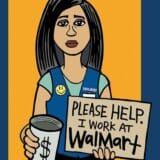
For a list of today’s Walmart protest actions, see our Guide to Black Friday Strikes.


This past June, I walked across the stage in front of thousands of students and family members to receive my bachelor’s degree from UCLA. There was a sea of black robes behind and in front of me, and as I set my feet on the stage and saw the crowd, I felt a rush of excitement. With the diploma in my hand, I felt the weightlessness of unlimited opportunity. Yet I knew that I didn’t get here alone. Two generations before me struggled to give me this chance.
Sitting in the living room at home in Santa Ana, California, my grandfather rocks back and forth as he tells me about his life as a Mexican bracero. Braceros were contract seasonal agricultural laborers who were part of a program between Mexico and the United States that lasted from 1944 to 1962 to help meet the U.S. needs for manual labor. My grandfather would wake up early to go down to the fields.
» Read more about: Three Generations: From Fields to Construction to UCLA »